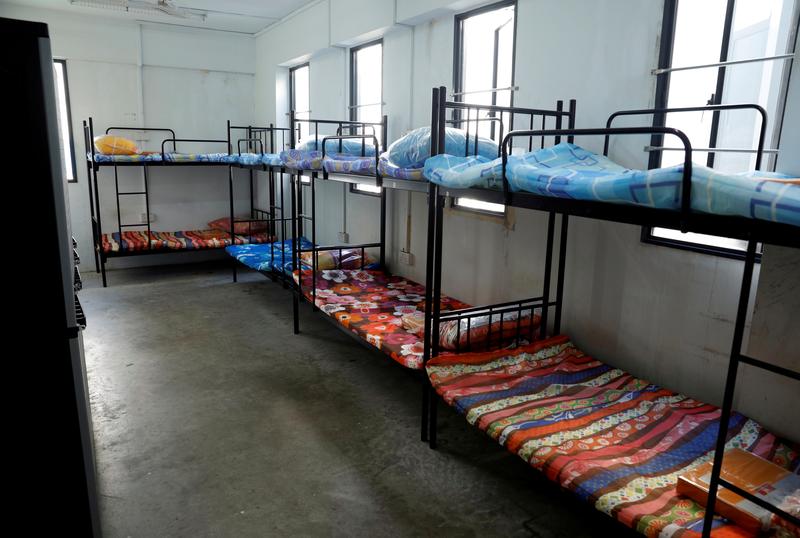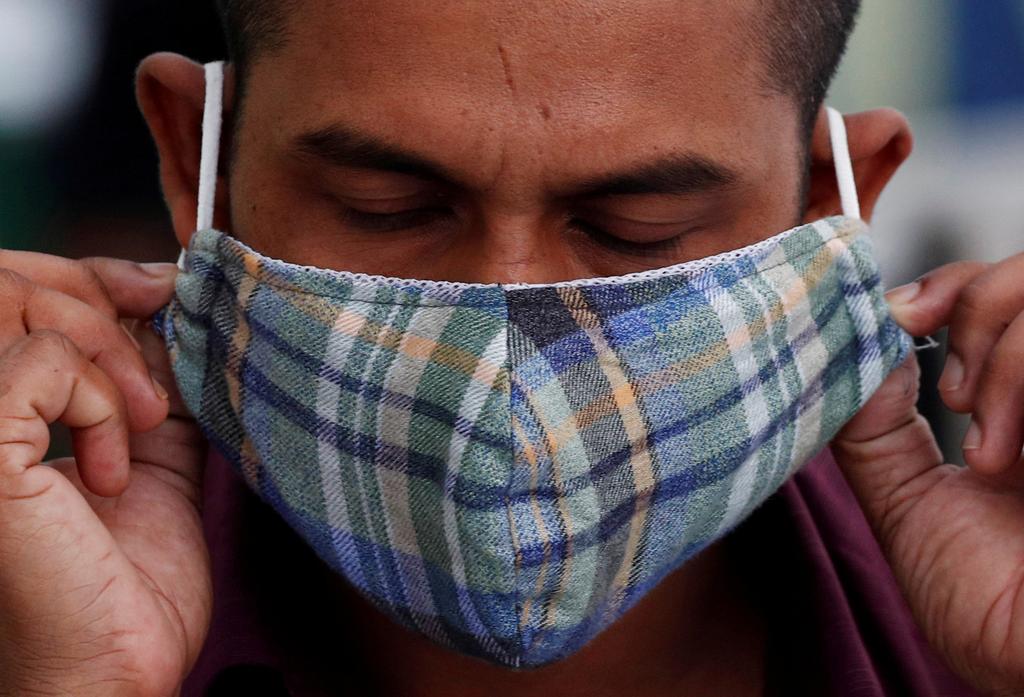SINGAPORE — Singapore is battling new clusters of coronavirus infections in migrant dormitories that had won the all-clear from authorities, highlighting the difficulty of stamping out the disease, even in a closely monitored population.
As the wealthy city-state tumbled into recession, officials facing intense pressure to revive the economy are opting for limited isolation measures rather than the wide clampdowns earlier, but most low-wage workers are still penned in.
“There is little choice,” said Leong Hoe Nam, an infectious diseases expert at the city’s Mount Elizabeth Hospital.
“We need to be realistic. We need the economy to go on.”
The dormitories, home to more than 300,000 workers in industries such as construction and shipbuilding, with several allocated to a room, contribute nearly 95% of Singapore’s tally of more than 57,000 infections.
When authorities uncovered the virus raging through the dormitories they sealed off their occupants, launched vigorous testing and ordered a nationwide lockdown.
Still, an average of 45 daily new infections has shown up there since authorities declared last month that all residents had recovered or been shown by testing to be virus-free. Outside, the daily average is just two local cases.
“It points out just the difficulty in smothering this virus,” said Michael Osterholm, an infectious diseases expert at the University of Minnesota, who tracked Singapore’s campaign.
As the virus rears up again in dormitories, workers must stave off fresh anxiety for their futures while employers must scramble to make up their numbers.
“Projects are being started and stopped again,” said Nixon Loh, general manager of Loh and Loh Construction, where 70 of his 280 workers were ordered to keep to their homes again.
|
|
| A migrant worker puts on a mask after a nose swab at a dormitory, amid the coronavirus disease (COVID-19) outbreak in Singapore May 15, 2020. Photo: Reuters |
Different tack
Many of the workers are uninfected, making them susceptible to the virus, but the government says it is prepared.
Rather than completely closing off dormitories, Singapore is now betting on a different tack: letting workers go to jobs but with repeated testing, greater social distancing, close monitoring and rapid isolation of close contacts.
“We believe that this repeated testing, rostered routine, will continue to allow us to weed out this thing and bring it under control,” said Tan See Leng, second minister for manpower.
There is also the risk of silent spread as few new infections produce symptoms, while polymerase chain reaction (PCR) tests may not pick up the virus at the time of a swab.
Some fresh cases show positive on tests that detect antibodies, pointing to likely past infections that can no longer spread and infect others, the health ministry says.
Other measures to fend off the virus range from fewer workers in dormitory rooms and wastewater checks for virus traces to segregated worksites to greater use of technology in tracking the contacts of infected people.
There is a low risk of another mass lockdown of dormitories and quarantine measures will be more targeted, said Hsu Li Yang, an infectious diseases expert at the National University of Singapore.
Yet most workers can only shuttle between dormitories and job sites, except for critical errands.
“Apart from work trips on lorries, we are not allowed to go out anywhere,” said construction supervisor Sharif Uddin.
“It’s a constant mental agitation.”
The construction industry was hit hard when the dormitories were sealed off, shrivelling 59% on the year in the second quarter when the economy slid into recession.
As more virus clusters emerge, many workers are being quarantined within weeks of resuming jobs. Some fear a repeat experience even more than getting infected.
“It feels like we are in a prison,” said construction worker Habibur Rahman, 25.
“We just want to go back to normal life. We want to work full time so that we can earn and send money home.”




















































